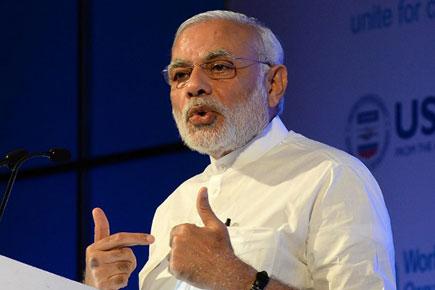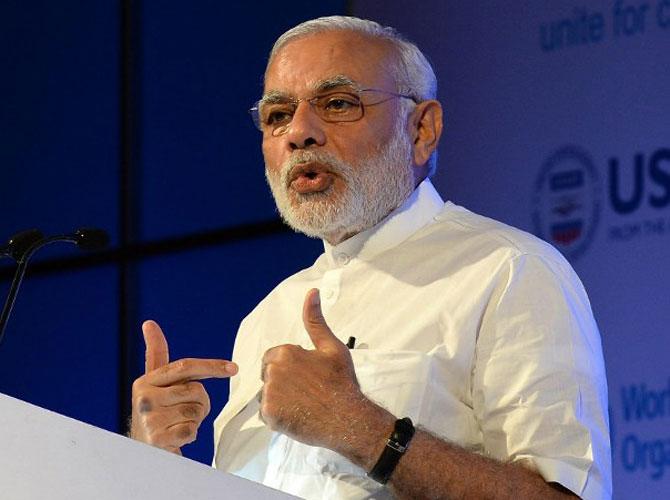The World Health Organisation has declared that mothers and newborns in India are free from tetanus at the time of birth, Prime Minister Narendra Modi said in New Delhi on Thursday

India Prime Minister Narendra Modi speaks during the "Call To Action Summit" in New Delhi on August 27, 2015.
New Delhi: The World Health Organisation has declared that mothers and newborns in India are free from tetanus at the time of birth, Prime Minister Narendra Modi said in New Delhi on Thursday.
ADVERTISEMENT
Inaugurating the Call to Action Summit 2015, an initiative to reduce child and maternal deaths across the world, the prime minister said the decisions taken during the conclave will shape the world in the next 15 years.
 India Prime Minister Narendra Modi speaks during the "Call To Action Summit" in New Delhi on August 27, 2015. Pic/AFP
India Prime Minister Narendra Modi speaks during the "Call To Action Summit" in New Delhi on August 27, 2015. Pic/AFP
"I am happy to share another major milestone achieved by India. India has eliminated maternal and neonatal tetanus. The validation for this has happened much before the global target date of December 2015. This gives us the confidence to achieve other targets well before the target date," Modi said.
Maternal and neonatal tetanus were among the most common lethal consequences of unclean deliveries and umbilical cord care practices. When tetanus develops, mortality rates are extremely high, especially when appropriate medical care is not available.
The two-day conclave, being hosted for the first time in India, is being participated by over 600 delegates from across the world. The last two conclaves were organised in the US.
According to WHO, there are 24 countries that make up for 36 percent of the global population, and account for 70 percent of child and maternal deaths. The world continues to lose about 289,000 mothers and 6.3 million under-five children every year.
Noting that 52 percent of India's under-five mortality is due to deaths of newborns in the first month of life, Modi said that under the national health mission, the government was emphasising a continuum of newborn care both at the community and facility level.
He also informed that the government was keeping track of the record of mothers and children availing of the government scheme and accordingly taking measures to improve the programme.
"Not only are the mothers provided focused-health services, individual beneficiary tracking is also being done through the countrywide maternal and child health tracking system, which ensures close tracking of inputs and outputs at the level of service provision. More than 92 million mothers and 78 million children have already been registered so far in the system," he said.
Currently, Mali has the highest Infant Mortality Rate (IMR) at 78, while South Sudan has the highest Mother Mortality Rate (MMR) at 730.
India's IMR stands at 40 while the MMR stands at 167.
Health Minister J.P. Nadda and his counterparts from Afghanistan, Senegal, South Sudan, Afghanistan and Ethiopia were among those who attended the event.
Modi also said that there was a need to institutionalise a system where marginalised communities receive universal health care and financial protection.
"India would be happy to assist any country with technology, system-strengthening and programme implementation capsules. We could train personnel for better management of child sickness as well as share our experience at home-based newborn care," Modi said.
 Subscribe today by clicking the link and stay updated with the latest news!" Click here!
Subscribe today by clicking the link and stay updated with the latest news!" Click here!






